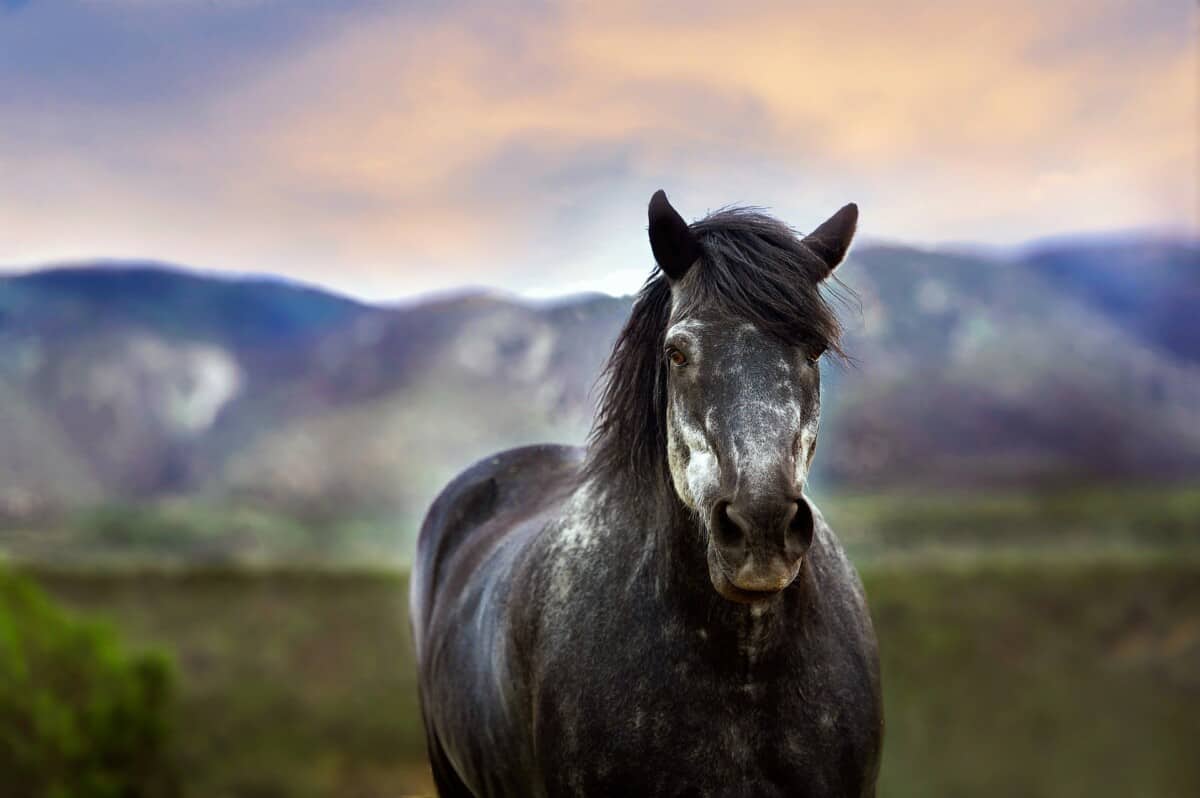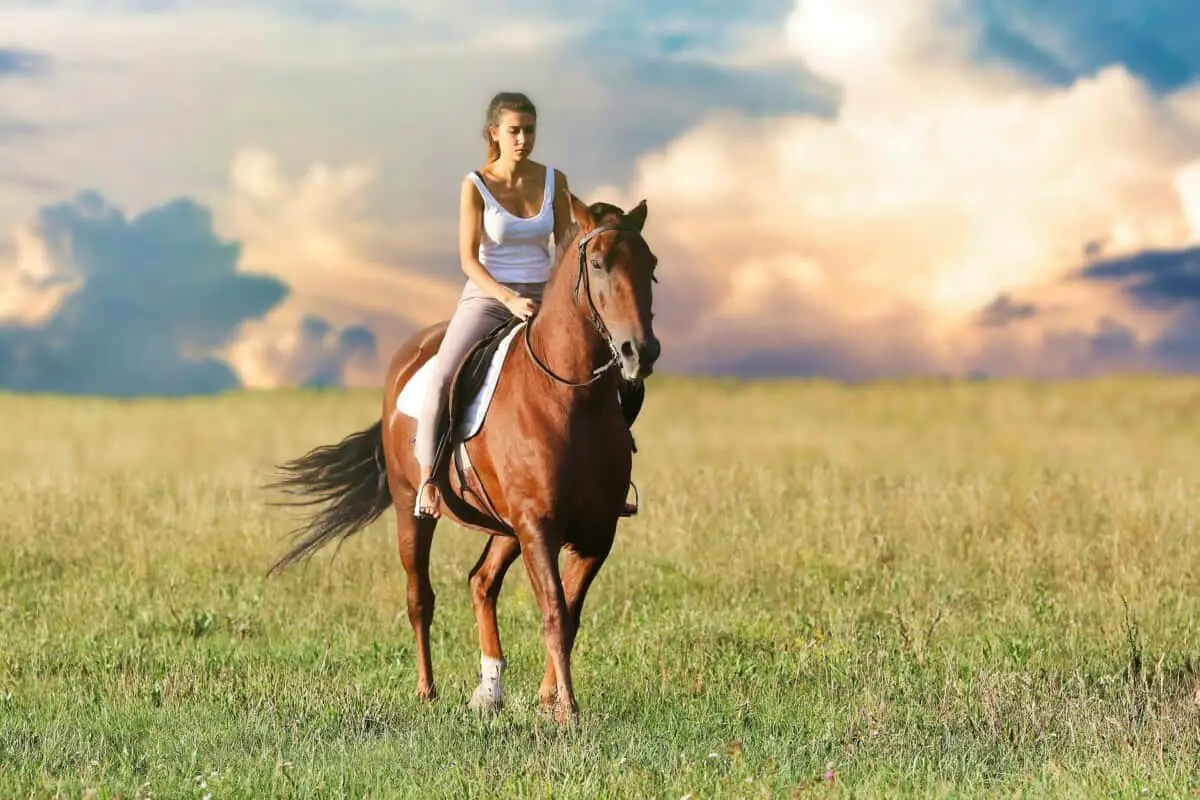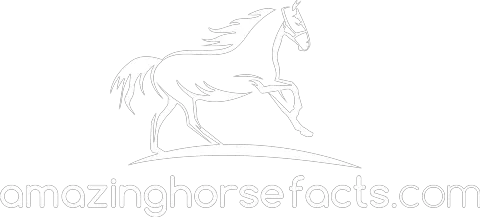Skip To Section
How long do horses live? The short answer is 25 to 30+ years of age. Signs of deterioration in health and aerobic ability begin to show when they turn 20 – the age when horses are considered “old” or “aged.”
In general, a horse that has lived for 25 to 30 years has lived a full life. However, if you are wondering how long your horse will live, many factors must be considered. Like humans, a horse’s lifespan will depend on its overall health.

Factors That Determine A Horse’s Lifespan
Factors that determine how long a horse will live to include:
1. The Horse Breed And The Workload Of The Horse
A typical case with many animals is the bigger the animal, the shorter its lifespan, and this is the case with horses as well. For example, drafts that are taller than Arabians tend to have a shorter lifespan than them.
Some horse breeds are known to outlive others – like the above case of the Arabians and the drafts.
Some types of horses outlive others – for instance, ponies tend to live longer than larger horses.
Some horse breeds are involved in performing more intensive and riskier jobs (horse racing) than others that ultimately give them a shorter life expectancy.
2. Disease
Some types and breeds of horses are more prone to developing certain diseases and medical conditions. For example, Appaloosas are prone to developing eye problems.
Overbreeding can lead to genetic disorders that are continuously passed from the parents to the offspring. For example, the foals of Arabian horses are often immune-deficient.
3. Nutrition
The lifespan of a horse and its overall health depend on the nutrition it gets. Horses that graze in high-quality pastures or get a good feed that consists of high-quality forage and minimum concentrates have better health and a longer lifespan than horses that are fed low-quality feed.
4. Care
How long a horse lives will depend on the kind of care it receives. Care includes consistent hoof care and dental care, regular vaccination, the proper quality and quantity of exercise and mental stimulation, living conditions, and parasite control.
Overworked horses, horses kept indoors unnecessarily, and even horses that are suddenly retired will have reduced lifespans.
5. Breeding
A wild horse is more likely to have a shorter lifespan than a pampered domestic horse during the breeding season. That is because of uncontrolled fights that could lead to shortened lives.
Mares have a short lifespan because of the frequent breeding cycle (breed, pregnancy, birth, foal care).
How To Help Your Horse To Live Longer
The care you give your horse determines how long it will live. You can extend your horse’s lifespan by ensuring proper care as it grows older. Here are some tips on how to help your horse live longer.
1. Take Care Of Your Horse’s Teeth
Your horse’s teeth are not going to be in as good condition and as pearly white as they were when it was a foal, but whatever teeth it has left must be in good working condition in its old age.
The action of its teeth is the first crucial step in the digestion process. The food must be masticated well so the digestive enzymes can digest this masticated food well in the intestines. As your old horse’s teeth wear down, they become misaligned. This makes chewing difficult.
If your horse cannot chew its food well, the entire digestion process will be affected. Food that is not chewed properly will be inadequately processed in the small intestine. This poorly digested food enters the hindgut and leads to fermentation and serious health problems like malnutrition, laminitis, and colic.
Older horses also tend to choke on poorly chewed food.
2. Ensure Your Horse Has Regular Check-Ups
Follow the vet’s advice on how often your horse needs check-ups. While some require a check-up only one in six months, horses that are not doing well might require more frequent check-ups. Regular check-ups are beneficial because, very often, serious medical conditions that are missed by owners are usually picked up during one of these check-ups.
A vet who sees a horse regularly is more likely to pick up the first signs of a disease or illness than a vet who gets to see a horse only once in two or three years.
3. Keep An Eye On Parasite Control
Today, there are far more effective parasite-control products available in the market than in the old days. This is one of the reasons why horses are living longer today. Ensure that you keep an eye on parasite control throughout your horse’s lifespan – starting from when they are young.
Damage caused by parasites is cumulative. As your horse gets older, scars develop in areas where larvae attach to tissues. This narrows down portions of the gastrointestinal (GI) tract and causes serious and irreversible health problems, like colic.
Most horse owners get very complacent about parasite control because today’s medications are potent; parasites are not as big a problem as they were in the past.
Deworming your horse is very important throughout its lifespan and is especially critical during its senior years.
4. Feed Your Horse Well
The nutrients that your horse receives are its life support system. That includes calories, minerals, and vitamins that it gets every day. Nutrients are required to sustain its essential body functions and ensure a healthy immune system. A healthy immune system ensures your horse is healthy and disease-free.
How much you feed your horse and how much nutrition and nutrition supplements it receives will depend largely on the kind of lifestyle it leads and its age. Younger and more active horses require more vitamins, minerals, proteins, and other nutrients than middle-aged and older horses.
Good quality feed that is specially formulated for different stages of a horse’s life is readily available today. Find one that suits your horse’s age.
As your horse grows older, so will its nutritional needs. Dietary changes will be required to keep up with its slowing digestive system.
5. Let Your Horse Get All The Exercise It Needs
There is a misconception that senior horses must be kept most of the time indoors.
The truth is that horses can benefit from outdoors no matter what stage of their life they are at. Even older horses that suffer from arthritis require exercise. Their muscles need as much exercise as they can tolerate – that does not mean you push your horse to its limit. Instead, it simply means that you give your horse the space it requires to roam and exercise freely and then let it decide how much exercise it needs.
If your horse does not make use of turnout time, then you can encourage it to walk around a bit by using a lead to walk it around the paddock twice a day.
Turnout can prevent arthritis, improve your horse’s health, and even prevent medical conditions like colic.
As a horse grows older, its turnout needs to change. Younger horses might prevent them from getting access to water and shelter and protection from the elements. You might need to separate the younger horses and bullies from your older horse.
The Oldest Horses
According to the Guinness World Records, Old Billy was the oldest horse. He was born in 1760, in the United Kingdom, and lived for 62 years.
The oldest twin horses in the world are Taff and Griff – identical twins and Cremello horses that were born in 1982.
Significant veterinary care advancements and advancements in equine health have now helped owners take care of their horses and have increased the average horse life expectancy. There are several other horses, like ‘Sugar Puff’ and Magic,’ who well crossed their 30s. Some horses, like ‘Orchid’ – a thoroughbred Arabian-Cross, was 51 years when he passed away.

How Old Is A Horse In Human Years?
Just like a dog’s age can be calculated in human years, a horse’s age can be calculated in human years as well. Some conditions can shorten a horse’s life or delay/damage its physical development. As noted earlier, nutrition and workload also affect how a horse will age. So, it is difficult to make an accurate match between a horse’s age and a human’s age.
What we can say for sure is that horses mature must faster than humans. For example, a human baby takes almost a year to walk, while a foal can learn to walk within an hour of its birth. Human babies begin eating solid food when they are around six months old, while a foal will begin imitating their mother and start nibbling grass within a few weeks.
Human and horse developments are very different. The overall aspects of growth are much faster in a horse than in a human. The following chart is the approximate age of a horse equivalent to a human.
| Horse age | Stage of life | Human age | Stage of life |
| 1 year | Foal, yearling, weanling | 6 years and 5 months | Infancy, babyhood, toddlerhood, pre-schooler. |
| 2 years | Two-year-old | 13 years | Adolescence/puberty |
| 3 years | Three-year-old | 18 years | Teenager |
| 4 years | Four-year-old | 20 years and 5 months | Young adult |
| 5 years | Physical maturity | 24 years and 5 months | Adulthood |
| 7 years | 28 years | ||
| 10 years | 35 years and 5 months | ||
| 13 years | Middle-aged | 43 years and 5 months | Middle-aged |
| 17 years | 53 years | ||
| 20 years | Senior | 60 years | Senior |
| 24 years | 70 years and 5 months | ||
| 27 years | 78 | 25% +/- is an average lifespan | |
| 30 years | Extreme old age | 85 years and 5 months | |
| 33 years | 93 years | ||
| 36 years | 100 years and 5 months |
Conclusion
Remember that old horses are like old people. They need a lot of TLC. Give them the love, compassion, and care that they deserve, need, and crave, and they will surprise you by living a long and healthy life. Don’t give up on your old horse – it needs you more in its old age than it ever needed you in its younger days.
